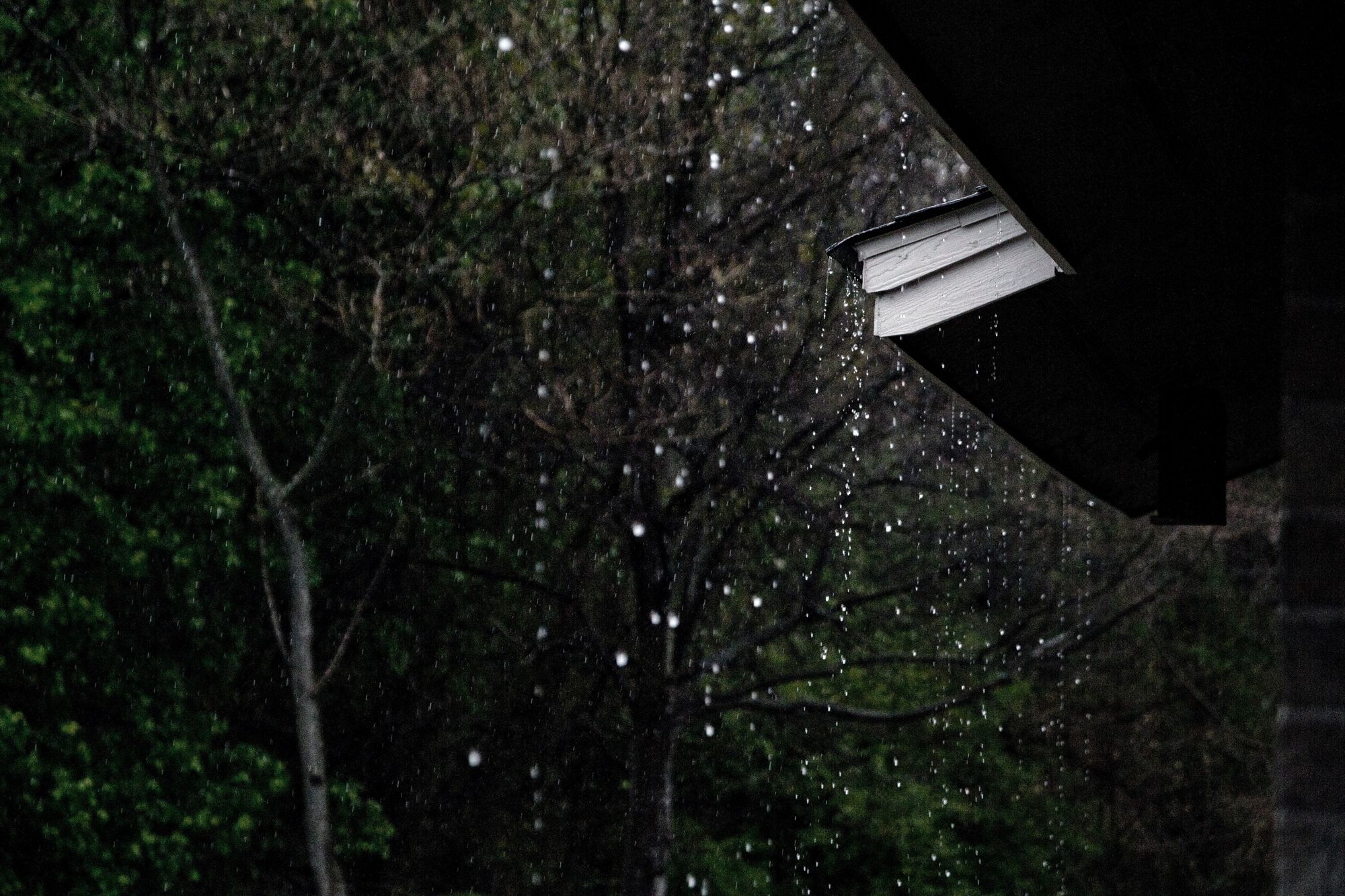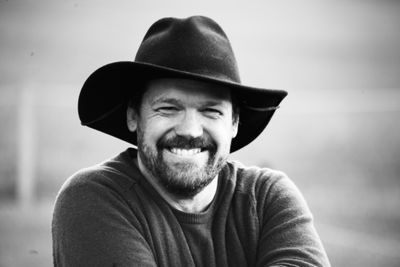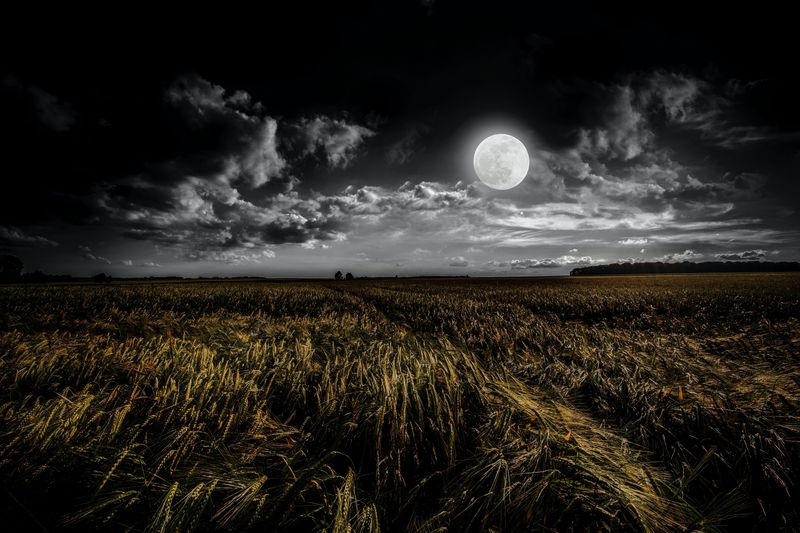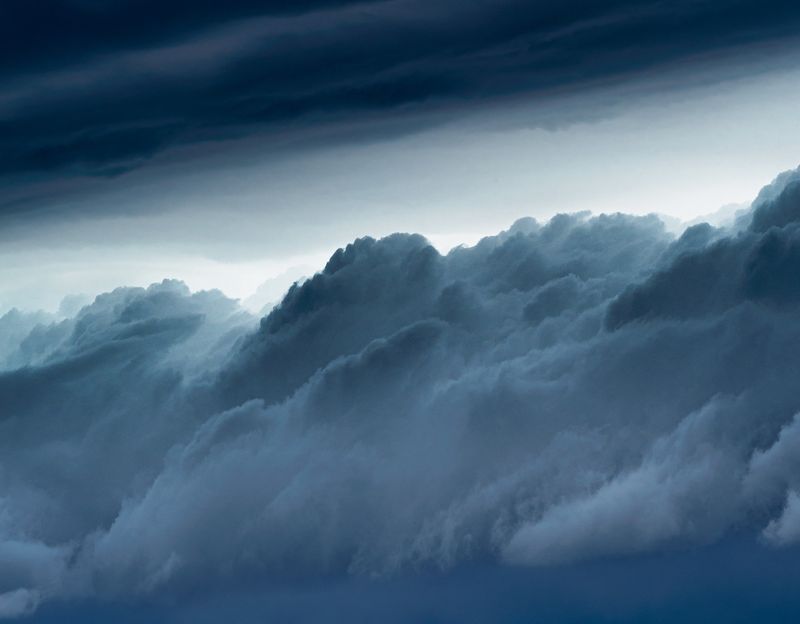The Austral summer is fading, and the rains are returning to the island. I'm listening to their steady drumming on my tin roof, and watching their drift across the fields.
All my life, this time of year has made me so conscious of time, and that the passing of time includes the drift of consequence. Only in the last decade or so, though, has that consequence come to feel so sobering to me, in light of what our future could hold. But if we are feeling an urgency, as so many of us do, about this time on Earth, is there an agency we can step into that has the potential to match it?
The issues of urgency and agency, oddly enough, often visit me at times of slow contemplation. And with the rain on the roof, and the afternoon stretched out, I'm thinking about a familiar paradox.
It goes something like this: I know that I am infinitesimally small in the schema of universe. I know my potential influence on the fate of humanity is, if it exists, probably minuscule. At the same time, I have something massive to live into, something boundless that is indeed, all about the fate of life on Earth.
And its not by becoming large in the world, that I live into this. I will become no more significant, nor create anything of greater significance, by doing this. I'll just be participating in a significance that already exists, larger than me but always including me, whenever I'm ready.
As you might be able to understand, I often feel reluctant to talk about this. But I sense that I need to try.
I've put forward the idea that being a part of human cultural evolution is our primary source of agency in the world. (See Flame and embers—late night thoughts on leverage and lineage.) But I am very aware that such a notion can seem too large and abstract to be of much use. It doesn’t much suggest what to do.
As I've also said earlier, this blog project is both open to suggesting what to do, and reluctant. I am open because I feel we should all be sharing what we find. But I guess the reluctance is greater. It comes from a few things:
1. I respect your own capacity to orient on a path. And I am no expert.
2. The complexity of any person's context outstrips another's capacity to make distant sense of it.
3. Most strongly of all, the question of what to do, while entirely reasonable, is also not the best question to be asking. It is a question driven by, and steeped in, the understandings that we need to move away from, if we have any chance in this historical context.
Instead, maybe I'll ask this one: What does it mean to be a part of human cultural evolution? For me, this abstract-sounding idea is a deeply practical and grounding kind of orientation. It’s a sensibility that I lean on, daily.
To be clear, I see human culture, and it’s growth and change over time, as an unfathomable phenomenon in its entirety—as wickedly complex as, say, the motion dynamics of turbulent water. But that doesn’t mean there are no simple truths to be told about it. Some might be as such:
Our actions in the world, our patterns of self-provisioning and interaction and trade and manipulation of the physical world, are the result of the way we think, feel, be. How we collectively think, feel and be in the world can be called culture. Culture is an Earthly phenomenon because it exists in the minds and experience of humans, most especially between humans. It is much larger than individuals, and it profoundly influences our species’ behaviour. It exists no less than do the chemical signals with which ants organise their actions, a biological adaptation.
As an adaptation, it is extremely powerful. It may be one of the most, or the most, powerful animal adaptations on the planet. The main reason being that it has the ability to accumulate. Innovation stays in place, is passed along, and creates more innovation, building more capacity upon each new gain of capacity. In this fashion, the ability to manipulate natural resources can grow, at first slowly, but in an exponential pattern. As we've seen in recent history, such an adaptation can also feed from its ecological nest to the point of overwhelming it.
In this way, while culture might be a biological phenomenon, it represents a quantum increase in earthly power over what is traditionally considered ‘biological evolution’, such as advances in bodily speed, eyesight or jaw strength, by which most species advance in capacity. Human civilisations were built upon a process of folding ecological resources into culture and using them to further grow culture, creating, in a sense, a niche that was not there before.
As Joe Brewer puts it,
Cultural evolution in the hominid line began to differentiate itself from the mechanisms of biological evolution about three million years ago. Increasingly, the “dual-inheritance” of culture and biology together enabled a third inheritance system to arise in the altered social and ecological structures of niches that could be built upon from one generation to the next. This system enabled the process to become self-amplifying until it achieved exponential take-off. It has since proven itself to be a force of geological significance as a subset of human cultures gained the ability to alter Earth systems and destabilise the entire biosphere of our home planet.
—The Design Pathway for Regenerating Earth, Earth Regenerators Press, 2021
As a root-cause explanation for our current predicament, exponential cultural evolution not only has deep revelations to offer, and implications in abundance, it also has the virtue—as does any root cause—of showing a way forward.
Because of our deep social inter-dependency, our radical attunement to how others of our species think, behave and be, and the potential for new ways of thinking and being to spread rapidly across the world, among other factors, cultural evolution is probably the only phenomenon powerful enough to drive our extinction, and also to transform the nature of our presence on Earth, enough to save us.
But because culture is so embedded into who we are as a species, we find it hard to see. We live our entire lives swimming in these waters, and we see virtually nothing else, while feeling that we see right through it.
And we miss the significance of being a swimmer.
This kind of natural cultural participation is clearly not the only source of agency in the world. Some of us have some political agency. We might have a voice, of sorts. We might fight effectively with wrong-doers. We might have the opportunity to build organisations or enterprises or such, or gather a following of like-minded thinkers. All that manner of potential exists.
But I suppose I am suggesting that, contrary to common understanding, this sort of influence likely lacks significance, is probably not the primary agency available to us. The modern 'Western' world view believes this kind of thing to be our only source of power in the world. But the modern world-view is built, rather sadly, upon some very outdated notions of how the world works, such as Newtonian physics, long since subsumed into far more sophisticated notions of reality by the scientific community.
The average world-view has a long run ahead to catch up. And thus, we still think of agency in terms of 'impact', as if that billiard ball model of the world actually holds up.
What does hold up is a model of deep inter-relational complexity and constant subtle change. Everything affecting everything else in unfollowable patterns of motion, at all scales. The world, in other words, is sensitive to your presence, and responds to what you do. We are not trained, by our mechanistic culture, to be aware of this gentle, constant flux, let alone to be able to sense its effect. I feel only dimly aware of it, and yet I suspect it is so much more powerful than I can fathom, with my modernity-trained brain.
And I have a few other suspicions I'm carrying about it:
- I suspect that its primary home is in the relationships we hold.
- I suspect that it is never dramatic, even at its greatest intensity, and leaves no markers—none legible to our current culture, at least.
- I suspect that when we try to have out-sized agency, scaled-up influence not fit to how evolution flows, we lose rather than gain this connection.

So, if any of this is true, perhaps its no surprise that the issues of urgency and agency visit me at times of slow contemplation. Perhaps its only in relaxation and stillness that we have a chance of perceiving the reality of how change occurs and what part we can play.
And so I go back to watching the rain, sensing, mostly blind, the drift of consequence, and wondering what it is that we all swim within.
Images 1. Erik Dungan / 2. Anna Atkins
Comments? If you would like to say something about this post, I'd love that. For personal reasons, I don't enable comments on the blog site, but please feel free to write to me—andy@wearehumans.com.au






